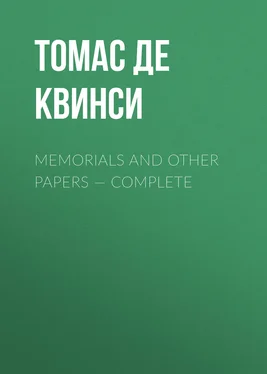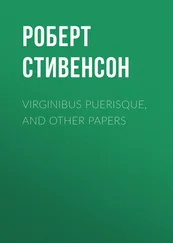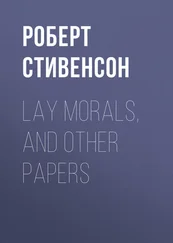Томас Де Квинси - Memorials and Other Papers — Complete
Здесь есть возможность читать онлайн «Томас Де Квинси - Memorials and Other Papers — Complete» — ознакомительный отрывок электронной книги совершенно бесплатно, а после прочтения отрывка купить полную версию. В некоторых случаях можно слушать аудио, скачать через торрент в формате fb2 и присутствует краткое содержание. Жанр: foreign_prose, literature_19, foreign_antique, на английском языке. Описание произведения, (предисловие) а так же отзывы посетителей доступны на портале библиотеки ЛибКат.
- Название:Memorials and Other Papers — Complete
- Автор:
- Жанр:
- Год:неизвестен
- ISBN:нет данных
- Рейтинг книги:5 / 5. Голосов: 1
-
Избранное:Добавить в избранное
- Отзывы:
-
Ваша оценка:
- 100
- 1
- 2
- 3
- 4
- 5
Memorials and Other Papers — Complete: краткое содержание, описание и аннотация
Предлагаем к чтению аннотацию, описание, краткое содержание или предисловие (зависит от того, что написал сам автор книги «Memorials and Other Papers — Complete»). Если вы не нашли необходимую информацию о книге — напишите в комментариях, мы постараемся отыскать её.
Memorials and Other Papers — Complete — читать онлайн ознакомительный отрывок
Ниже представлен текст книги, разбитый по страницам. Система сохранения места последней прочитанной страницы, позволяет с удобством читать онлайн бесплатно книгу «Memorials and Other Papers — Complete», без необходимости каждый раз заново искать на чём Вы остановились. Поставьте закладку, и сможете в любой момент перейти на страницу, на которой закончили чтение.
Интервал:
Закладка:
These vast piles are applied to an end, absolutely indispensable to any even tolerable system of discipline, and yet absolutely unattainable upon any commensurate scale in any other university of Europe. They are applied to the personal settlement and domestication of the students within the gates and walls of that college to whose discipline they are amenable. Everywhere else the young men live where they please and as they please; necessarily distributed amongst the towns- people; in any case, therefore, liable to no control or supervision whatever; and in those cases where the university forms but a small part of a vast capital city, as it does in Paris, Edinburgh, Madrid, Vienna, Berlin, and Petersburg, liable to every mode of positive temptation and distraction, which besiege human life in high-viced and luxurious communities. Here, therefore, it is a mockery to talk of discipline; of a nonentity there can be no qualities; and we need not ask for the description of the discipline in situations where discipline there can be none. One slight anomaly I have heard of as varying pro tanto the uniform features of this picture. In Glasgow I have heard of an arrangement by which young academicians are placed in the family of a professor. Here, as members of a private household, and that household under the presiding eye of a conscientious, paternal, and judicious scholar, doubtless they would enjoy as absolute a shelter from peril and worldly contagion as parents could wish; but not more absolute, I affirm, than belongs, unavoidably, to the monastic seclusion of an Oxford college—the gates of which open to no egress after nine o'clock at night, nor after eleven to any ingress which is not regularly reported to a proper officer of the establishment. The two forms of restraint are, as respects the effectual amount of control, equal; and were they equally diffused, Glasgow and Oxford would, in this point, stand upon the same level of discipline. But it happens that the Glasgow case was a personal accident; personal, both as regarded him who volunteered the exercise of this control, and those who volunteered to appropriate its benefits; whereas the Oxford case belongs to the very system, is coextensive with the body of undergraduates, and, from the very arrangement of Oxford life, is liable to no decay or intermission.
Here, then, the reader apprehends the first great characteristic distinction of Oxford—that distinction which extorted the rapturous admiration of Lipsius as an exponent of enormous wealth, but which I now mention as applying, with ruinous effect, to the late calumnies upon Oxford, as an inseparable exponent of her meritorious discipline. She, most truly and severely an "Alma Mater" gathers all the juvenile part of her flock within her own fold, and beneath her own vigilant supervision. In Cambridge there is, so far, a laxer administration of this rule, that, when any college overflows, undergraduates are allowed to lodge at large in the town. But in Oxford this increase of peril and discretionary power is thrown by preference upon the senior graduates, who are seldom below the age of twenty-two or twenty-three; and the college accommodations are reserved, in almost their whole extent, for the most youthful part of the society. This extent is prodigious. Even in my time, upwards of two thousand persons were lodged within the colleges; none having fewer than two rooms, very many having three, and men of rank, or luxurious habits, having often large suites of rooms. But that was a time of war, which Oxford experience has shown to have operated most disproportionably as a drain upon the numbers disposable for liberal studies; and the total capacity of the university was far from being exhausted. There are now, I believe, between five and six thousand names upon the Oxford books; and more than four thousand, I understand, of constant residents. So that Oxford is well able to lodge, and on a very sumptuous scale, a small army of men; which expression of her great splendor I now mention (as I repeat) purely as applying to the question of her machinery for enforcing discipline. This part of her machinery, it will be seen, is unique, and absolutely peculiar to herself. Other universities, boasting no such enormous wealth, cannot be expected to act upon her system of seclusion. Certainly, I make it no reproach to other universities, that, not possessing the means of sequestering their young men from worldly communion, they must abide by the evils of a laxer discipline. It is their misfortune, and not their criminal neglect, which consents to so dismal a relaxation of academic habits. But let them not urge this misfortune in excuse at one time, and at another virtually disavow it. Never let them take up a stone to throw at Oxford, upon this element of a wise education; since in them, through that original vice in their constitution, the defect of all means for secluding and insulating their society, discipline is abolished by anticipation— being, in fact, an impossible thing; for the walls of the college are subservient to no purpose of life, but only to a purpose of convenience; they converge the students for the hour or two of what is called lecture; which over, each undergraduate again becomes sui juris , is again absorbed into the crowds of the world, resorts to whatsoever haunts he chooses, and finally closes his day at——if, in any sense, at home—at a home which is not merely removed from the supervision and control, but altogether from the bare knowledge, of his academic superiors. How far this discipline is well administered in other points at Oxford, will appear from the rest of my account. But, thus far, at least, it must be conceded, that Oxford, by and through this one unexampled distinction—her vast disposable fund of accommodations for junior members within her own private cloisters— possesses an advantage which she could not forfeit, if she would, towards an effectual knowledge of each man's daily habits, and a control over him which is all but absolute.
This knowledge and this control is much assisted and concentrated by the division of the university into separate colleges. Here comes another feature of the Oxford system. Elsewhere the university is a single college; and this college is the university. But in Oxford the university expresses, as it were, the army, and the colleges express the several brigades, or regiments.
To resume, therefore, my own thread of personal narration. On the next morning after my arrival in Oxford, I assembled a small council of friends to assist me in determining at which of the various separate societies I should enter, and whether as a "commoner," or as a "gentleman commoner." Under the first question was couched the following latitude of choice: I give the names of the colleges, and the numerical account of their numbers, as it stood in January, 1832; for this will express, as well as the list of that day, (which I do not accurately know), the proportions of importance amongst them.
Mem. 1. University College
……………..
207 2. Balliol "
……………..
257 3. Merton "
……………..
124 4. Exeter "
……………..
299 5. Oriel "
……………..
293 6. Queen's "
……………..
351 7. New "
……………..
157 8. Lincoln "
……………..
141 9. All Souls' "
……………..
98 10. Magdalene "
……………..
165 11. Brazennose "
……………..
418 12. Corpus Christi "
……………..
127 13. Christ Church "
……………..
949 14. Trinity "
……………..
259 15. St. John's "
……………..
218 16. Jesus "
……………..
167 17. Wadham "
……………..
217 18. Pembroke "
Читать дальшеИнтервал:
Закладка:
Похожие книги на «Memorials and Other Papers — Complete»
Представляем Вашему вниманию похожие книги на «Memorials and Other Papers — Complete» списком для выбора. Мы отобрали схожую по названию и смыслу литературу в надежде предоставить читателям больше вариантов отыскать новые, интересные, ещё непрочитанные произведения.
Обсуждение, отзывы о книге «Memorials and Other Papers — Complete» и просто собственные мнения читателей. Оставьте ваши комментарии, напишите, что Вы думаете о произведении, его смысле или главных героях. Укажите что конкретно понравилось, а что нет, и почему Вы так считаете.












